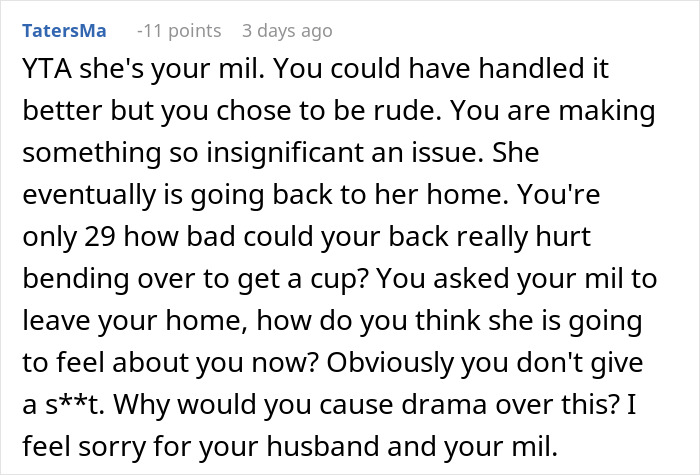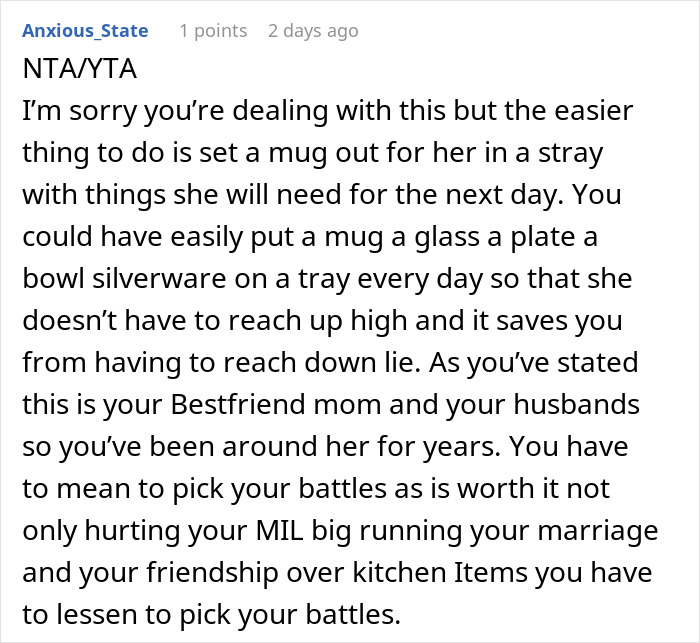Tall girl problems aren’t something I’ve ever had to deal with. Falling more into the “vertically challenged” category, I have my own set of short girl problems. The average heights for women vary slightly depending on things like ethnicity and nationality. But in America, the average female height is considered to be around 5 feet and 3.5 inches.
One woman recently shared how her 6’6” height has forced her to arrange her kitchen cupboards in a very particular way, so that she doesn’t have to crouch to get things. The woman’s (shorter) husband is happy to sometimes stand on a stepladder if needs be. But all hell broke loose when his mother came to stay, and kept rearranging the cupboards to suit her own needs. The woman retaliated in a way that’s now making her rethink her actions.
Being below or above “average height” can cause all sorts of problems

Image credits: Thirdman / Pexels (not the actual photo)
For one tall woman, the biggest thorn in her side turned out to be her mother-in-law

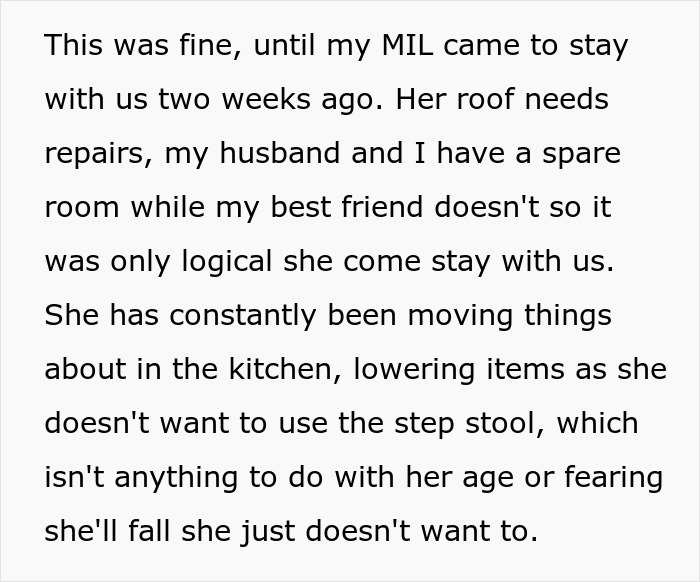



Image credits: Alex Green / Pexels (not the actual photo)




Image credits: NoWillingness3090
Unpacking the highs and lows of being tall…
If you’re not a tall person yourself, you might not have ever stopped to consider what life is like up there. Being above average in height can have its perks. Like being able to see the stage at a music concert, easily grabbing things off the top shelf, being closer to the netball or basketball hoop, or being taken more seriously (by some).
But it’s not all smooth sailing. Some of those towering a few inches above the rest report difficulties finding clothes that fit, being uncomfortable in cars or planes, being teased, having their feet hang off the bed, suffering neck or back pain from crouching, and even low self-esteem.
Elizabeth Joy Fuller chose to focus on tall women for her Sociology thesis titled “‘Can You Believe They Think I’m Intimidating?’ An Exploration of Identity in Tall Women.” Fuller interviewed ten women, all 5’11” or taller.
She found that tall women are frequently the subject of unwanted height-related comments, and this can make them feel self-consciousness. “This self-consciousness is reinforced by social infrastructure, heteronormative gender expectations, and othering in the form of harassment and bullying,” she said, adding that many of those she interviewed admitted to being bullied about their height as children.
The Netflix movie Tall Girl reinforces this, with the main character Jodi being taunted by daily comments such as “How’s the weather up there?”
Fuller also noted that some tall women tend to internalize their height through interactions with both other people and their environment. “These interactions can begin from a young age, and can affect how tall women perceive themselves to the point where their height becomes a minor bodily stigma, or, a feature which is perceived negatively,” she wrote.
Fuller points out the fact that tall girls aren’t always treated the same as tall boys, noting that some girls are prescribed hormones to prevent them growing too tall. But above-average height is seen as an acceptable trait for boys.
A separate 2005 research paper notes that “treatment with synthetic oestrogens to reduce adult height has been available for tall girls since the 1950s.”
“The tall women in my study learned to negotiate and avoid their height in situations that caused them discomfort, yet eventually accepted their height as a part of their identity after overcoming adversity in their childhood and youth,” wrote Fuller.
She believes more research should be done on the experiences of tall women. “This is important because tall women are often assumed to be happy and satisfied with their height, while their feelings and experiences are ignored in favor of the overarching narrative of beneficial tallness.”
People had quite a few questions after reading the post, and the woman was happy to answer
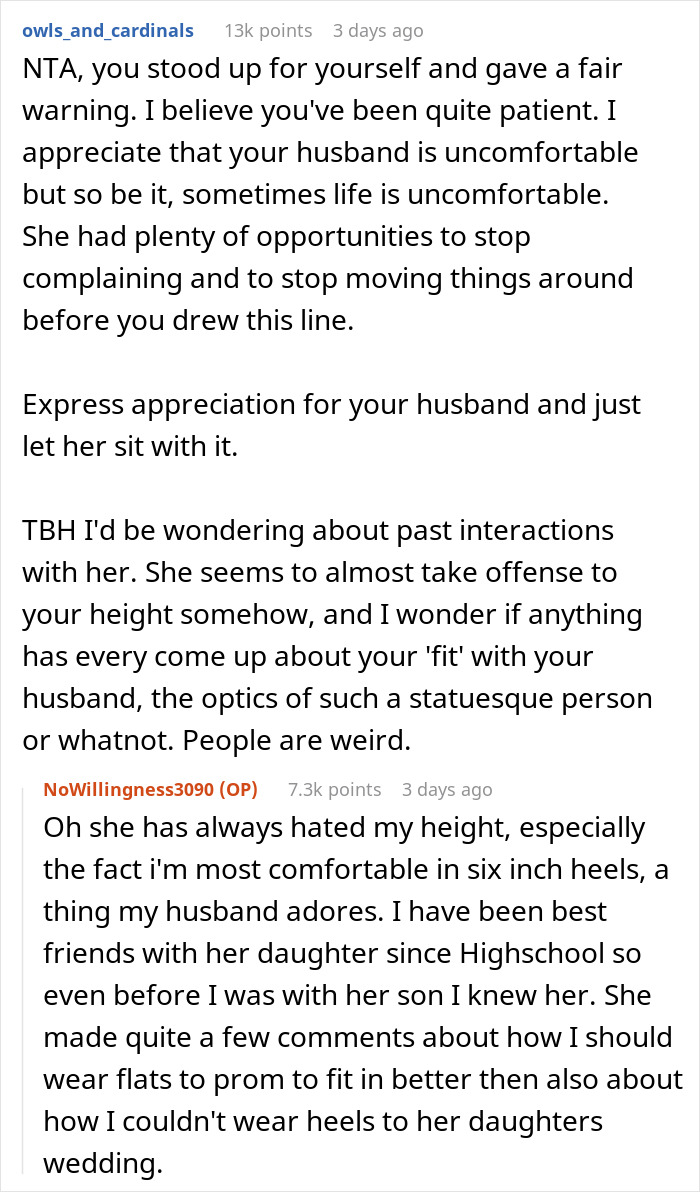

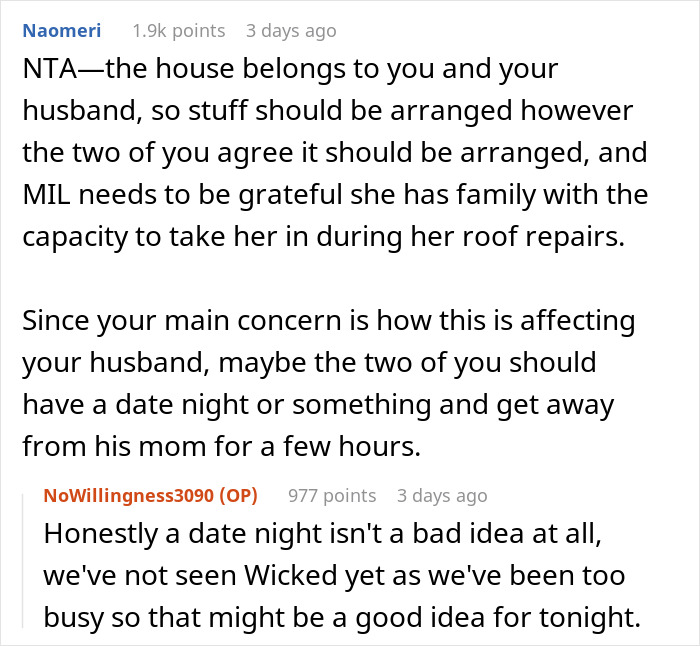



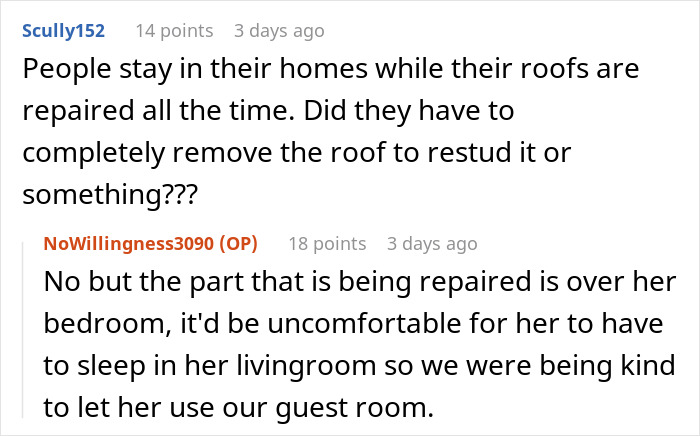
“You live in a world that isn’t really built for you”: netizens came to the tall woman’s defence
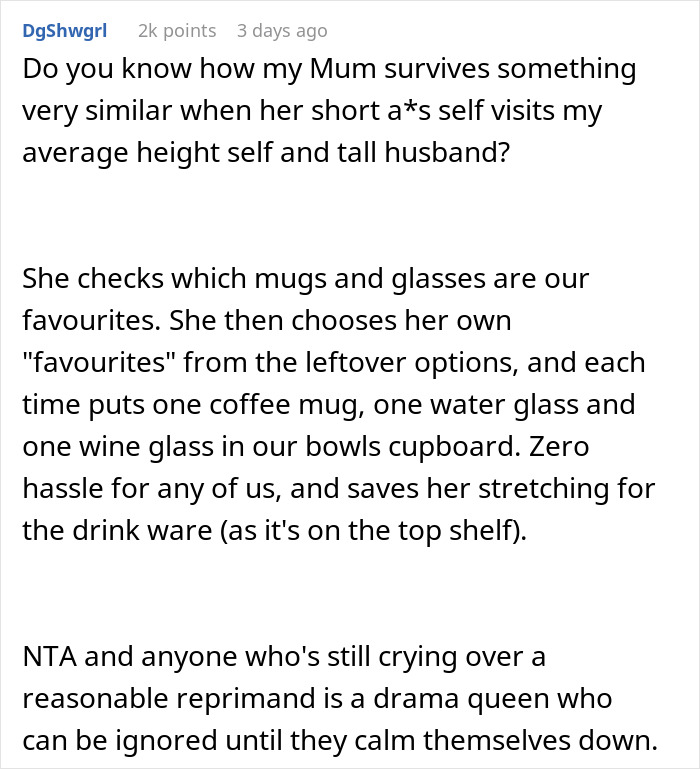
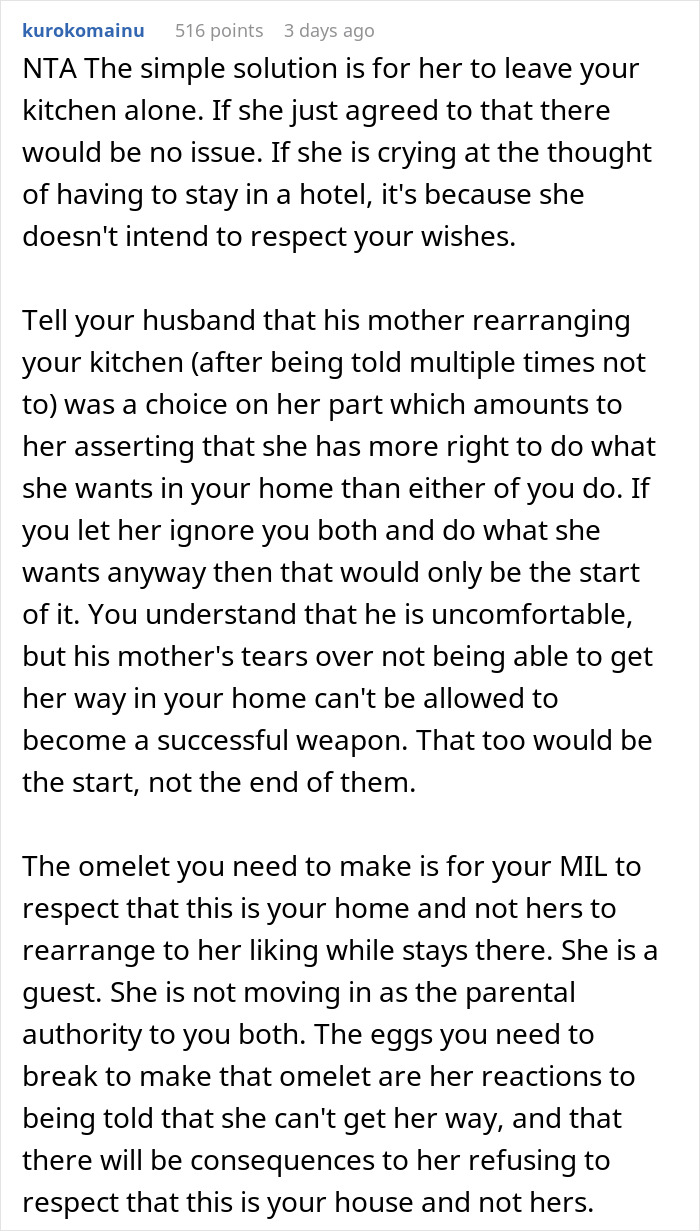

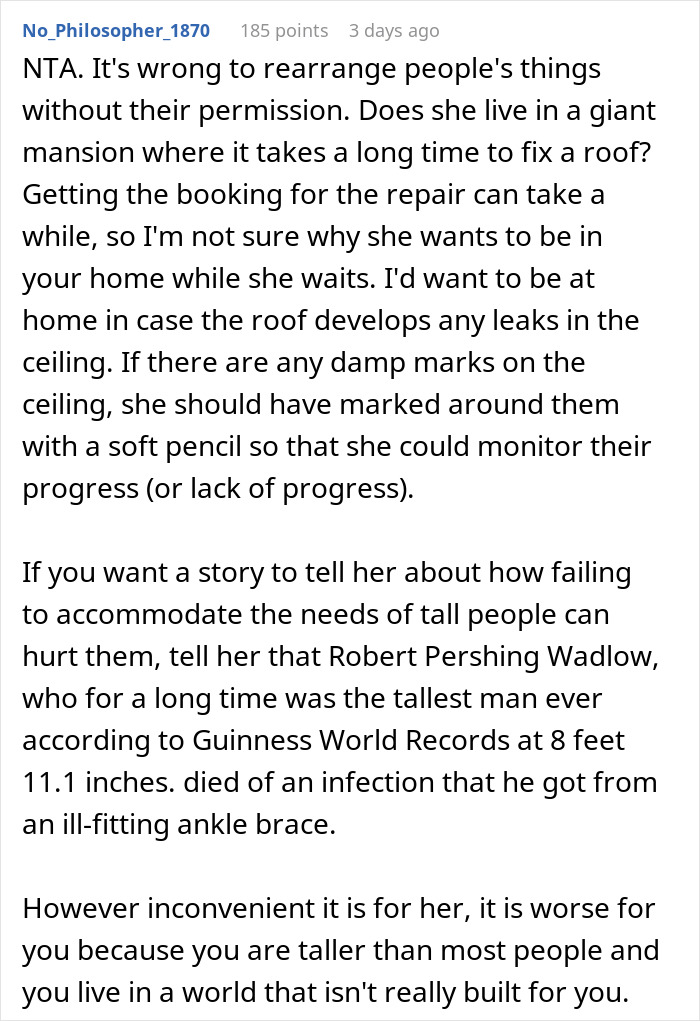


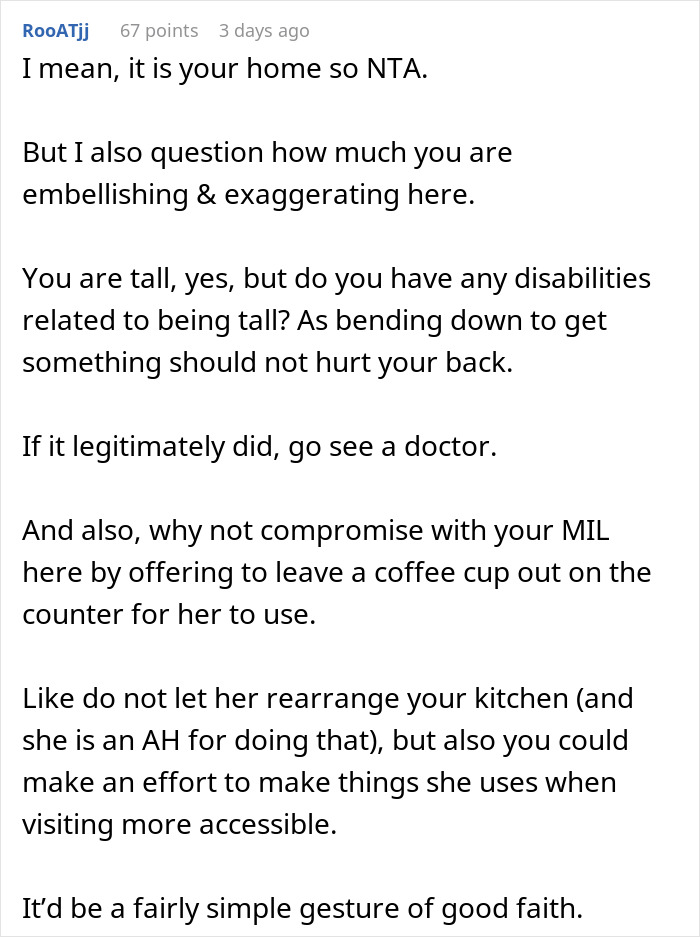
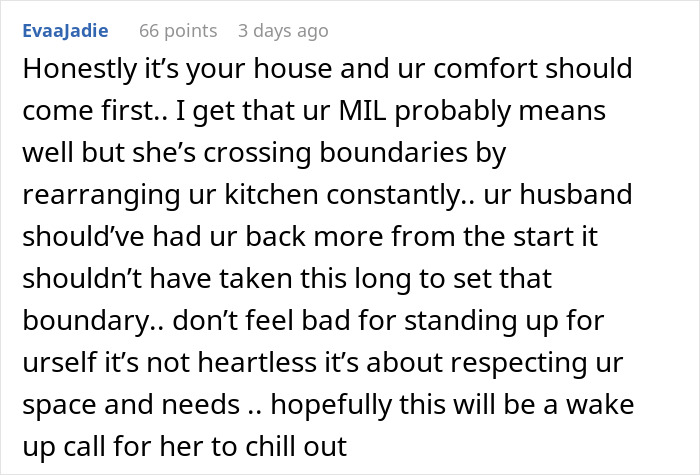
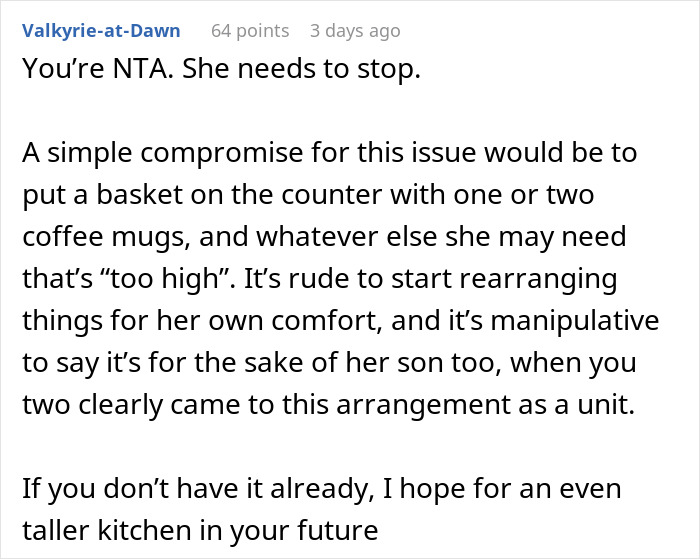
“Get a grip, lady”: some netizens felt the woman should be more accommodating towards her MIL



